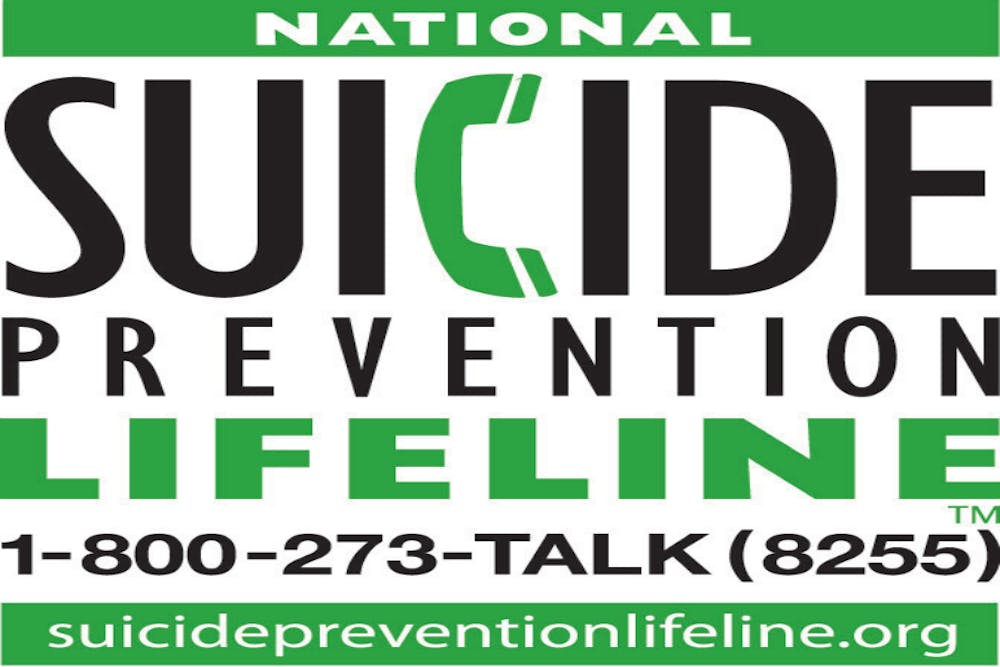By Krista Savage, For The Miami Student
Among the many reasons behind attempted suicide, feeling alone is the most powerful.
That's how first-year Amanda Bryant, whose name has been changed to protect her identity, felt when, halfway through second semester, the hardships of depression became prevalent in her everyday life. She began cutting herself.
"The pressure to be perfect academically and physically is so overwhelming at this school," Bryant said. "I just got to the point where I couldn't take it. The pressure of the semester got to me, and I didn't know what else to do."
Bryant began secluding herself, never leaving the dorm room. Eventually, she lacked the strength to go to class or do her homework. When her grades began dropping and her lack of energy was obvious to everyone in the hall, the RA approached her. Together, they went to the student counseling center. But the issues didn't go away.
"College is scary," Bryant said. "Sometimes I feel like I don't have a single person I can talk to. The counseling center isn't my family. It's not my friends. It's not going to substitute for something that I can trust and get better with. I'm alone."
But Bryant isn't alone. Every day students mask their pain on the surface, but are enduring the same struggles underneath.
Last year, sophomore Andrew Salsman was found dead with a shotgun at his side. Prolonged effects of anxiety and obsession-compulsive disorder drove him to suicide.
The death of Salsman was shocking. A devoted physics major, he loved his studies and was extremely intelligent. It shocked his mother, Lynn Anderson, most of all.
Shortly after the death of her son, Anderson became a strong advocate for raising suicide awareness. The distressing news of her son's death set her on a path of problem-solving. She was grateful for the sources available at Miami, but she knew something was missing, because if everything he needed was available, her son would still be alive.
"Suicide prevention programs and hotlines serve a useful purpose and save lives. But something is missing. We need a community of eyes and ears to look out for people who are masking," Anderson said in a previous Miami Student article on March 18, 2014.
Since Salsman's death, Miami has not seen any other suicides. However, that doesn't mean the problems have been solved.
College students have demanding responsibilities, and reasons for depression can range from stressful course-loads to feeling like Bryant, unwanted and alone.
This week, Miami's Suicide Prevention Team and the student counseling services (SCS) joined efforts to create "Stress Less" week, a campaign dedicated to stress management and raising suicide awareness.
Kip Alishio, Director of SCS, wants students to become more aware of the resources available through the counseling center for anyone who is seeking help or attention.
"There is a stigma in our society that asking for help or admitting that you need help is a bad thing," Alishio said. "We all feel alone sometimes, but it is important to know that you never are, and there is always someone who you can talk to."
Many students on campus already utilize SCS, and the number is growing each year. Right now, the number of Miami students who use counseling services is around 1,700 per year. One out of every three Miami students uses the services at least once during his or her time at Miami.
Diversity also plays a large role at Miami.
Research shows that LGBT students are at a much higher risk of depression or suicide. A Miami poll conducted in 2012 revealed 65 percent of students who identify as heterosexual and are involved with Greek life continuously feel like they belong here. As opposed to only 22 percent of LGBT students.
LGBT students report being exposed to more negative LGBT content, speak out much more often about transgender rights and have far fewer friends in sororities or fraternities.
Alishio stresses the importance of discussion to any student who is struggling with depression or suicide.
"We can't seek students out, but we can raise awareness," he said. "It is important to know that there is always someone to talk to, whether that be a crisis hotline, friends, family or us [SCS]."

